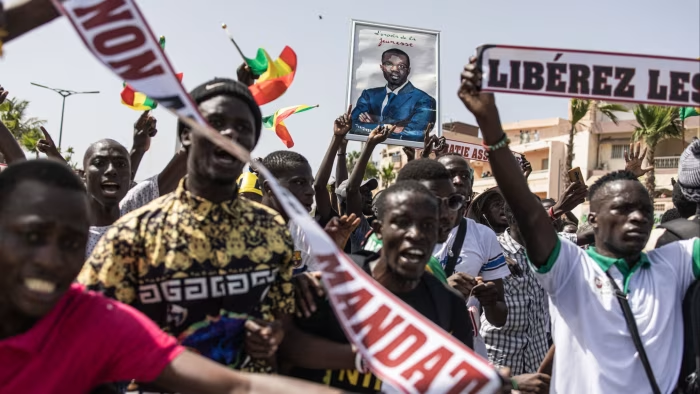
Senegalese rapper Thiat has sparked a national debate with his latest release, “Porozé Bi,” reigniting discussions about the role of music as a vehicle for political critique.
While PASTEF MP Amadou Ba hailed the song as an exercise of freedom of expression, others expressed offense, posting a wave of reactions on social media.
The contrasting responses underscore the central place of rap in Senegalese political discourse, reflecting both the power of the state and the dynamism of a society in ongoing debate over its choices.
A musical language shaped by protest
Since the late 1980s, Senegalese rap has thrived in the crucible of political conflict.
The contentious re-election of President Abdou Diouf and the gradual liberalization of the media provided young artists unprecedented opportunities to express dissent. Rap became a platform where social anger could be voiced and amplified.
As rapper Matador notes, “Senegalese rap was born engaged.”
The 2000 compilation Politichiens marked a defining moment, giving a voice to disillusioned youth who denounced elite duplicity and the perceived complicity of religious authorities.
Beyond its artistic success, the album established rap as a chronicle of societal distrust, transforming frustration into cultural expression.
From activist collectives to political engagement
Criticism of the authorities has not been confined to albums alone. In 2011, the collective Y’en a Marre, co-founded by Thiat, Fou Malade, and Kilifeu, took civic activism to the streets, mobilizing young voters to challenge President Abdoulaye Wade’s attempt to run for a third term. Concerts doubled as political gatherings, bridging music and civic participation.
Thiat’s group Keur Gui continued this legacy under President Macky Sall, producing unflinching tracks such as Saï Saï au cœur (2018), which criticised government promises left unfulfilled.
Each political transition in Senegal has thus encountered a protest rap ready to articulate popular disillusionment.
“Porozé Bi,” Thiat’s latest work, satirizes the gap between political announcements and the lived reality of Senegalese citizens.
The song critiques the administration of Bassirou Diomaye Faye and Prime Minister Ousmane Sonko for authoritarian tendencies and economic shortcomings, demonstrating once again the enduring power of rap as a mirror of society’s frustrations.



